A Sustainable and Health-Conscious Choice Introduction: Organic food has gained immense popularity in recent years, with consumers increasingly seeking products that are both healthy and environmentally conscious. In line with this trend, organic tomato paste in glass jars has become a sought-after staple in many kitchens. This article provides a summary of the growing demand for organic tomato paste in glass jars and explores the reasons behind its rise in popularity. 1. The Organic Advantage: Organic tomato paste is derived from tomatoes that are cultivated without the use of synthetic fertilizers, pesticides, or genetically modified organisms (GMOs). Instead, organic farmers employ natural methods to grow and protect their crops, resulting in a healthier and safer product. Consumers are increasingly aware of the potential harm associated with consuming pesticide residues found in conventionally grown fruits and vegetables, making the shift towards organic tomato paste an obvious choice to mitigate these risks. 2. Glass Jars: The Preferred Packaging: Glass jars have emerged as the preferred packaging option for organic tomato paste for several reasons. Firstly, glass is a non-porous material that prevents the migration of chemicals from the packaging into the product. Compared to plastic containers, glass jars do not leach harmful substances, safeguarding the integrity and purity of the tomato paste. Moreover, glass is infinitely recyclable, allowing consumers to minimize their environmental impact by choosing packaging options that can be reused or recycled. 3. Nutritional Benefits: Organic tomato paste typically undergoes minimal processing, thus preserving important vitamins, minerals, and antioxidants present in the tomatoes. Lycopene, a powerful antioxidant found in tomatoes, is known for its potential role in reducing the risk of certain types of cancers and promoting heart health. By choosing organic tomato paste, consumers can maximize their intake of these beneficial compounds, enhancing the nutrient profile of their meals. 4. Flavor and Culinary Versatility: Besides its health benefits, organic tomato paste in glass jars significantly enhances the flavor of dishes. Its rich, concentrated taste adds depth and complexity to a wide range of recipes, from pasta sauces to stews and soups. With its thick consistency, organic tomato paste is an essential ingredient for creating robust flavors, making it a must-have for culinary enthusiasts and home cooks alike.
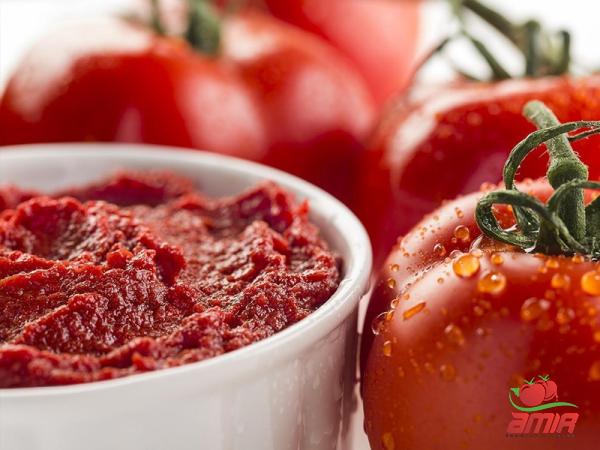
tomato paste
 5. Sustainability and Environmental Impact: Organic tomato paste in glass jars embodies sustainability throughout its production cycle. The cultivation of organic tomatoes promotes the use of natural fertilizers and pest control methods, minimizing environmental pollution. Furthermore, glass jars eliminate the need for single-use plastic packaging, significantly reducing plastic waste and its detrimental effects on ecosystems. By choosing organic tomato paste in glass jars, consumers can actively contribute to a more sustainable future. 6. Transparency and Traceability: Organic certification provides consumers with the assurance that the tomato paste meets stringent standards set by reputable organic governing bodies. Transparency in the organic food industry allows consumers to make informed choices about the ingredients they incorporate into their meals. Many organic tomato paste brands go beyond organic certification, providing additional information on the source of their tomatoes, farming practices, and processing methods, further enhancing consumer trust. 7. Market Growth and Consumer Demand: The market for organic tomato paste in glass jars has witnessed steady growth in recent years. Increasing health-consciousness, a growing preference for sustainable packaging, and a demand for clean and flavorful ingredients have driven this trend. Furthermore, the rise of home cooking and the popularity of ethnic cuisines that often rely on tomato-based sauces have contributed to the surge in demand for organic tomato paste. 8. Beyond Individual Consumption: The demand for organic tomato paste is not limited to individual consumers. The foodservice industry, including restaurants, cafes, and catering businesses, is increasingly recognizing the importance of incorporating organic ingredients into their offerings. Organic tomato paste provides chefs and food professionals with a convenient and high-quality ingredient to create flavorful dishes while meeting the demands of health-conscious consumers. Conclusion: The rise of organic tomato paste in glass jars reflects the growing awareness and demand for sustainable, healthy, and flavorful food choices. With benefits ranging from nutritional advantages and culinary versatility to reduced environmental impact, organic tomato paste in glass jars is here to stay. By opting for this product, consumers contribute to their own well-being, support organic farming practices, and actively participate in building a more sustainable food system.I. Increasing Consumer Awareness: A Catalyst for Growth
5. Sustainability and Environmental Impact: Organic tomato paste in glass jars embodies sustainability throughout its production cycle. The cultivation of organic tomatoes promotes the use of natural fertilizers and pest control methods, minimizing environmental pollution. Furthermore, glass jars eliminate the need for single-use plastic packaging, significantly reducing plastic waste and its detrimental effects on ecosystems. By choosing organic tomato paste in glass jars, consumers can actively contribute to a more sustainable future. 6. Transparency and Traceability: Organic certification provides consumers with the assurance that the tomato paste meets stringent standards set by reputable organic governing bodies. Transparency in the organic food industry allows consumers to make informed choices about the ingredients they incorporate into their meals. Many organic tomato paste brands go beyond organic certification, providing additional information on the source of their tomatoes, farming practices, and processing methods, further enhancing consumer trust. 7. Market Growth and Consumer Demand: The market for organic tomato paste in glass jars has witnessed steady growth in recent years. Increasing health-consciousness, a growing preference for sustainable packaging, and a demand for clean and flavorful ingredients have driven this trend. Furthermore, the rise of home cooking and the popularity of ethnic cuisines that often rely on tomato-based sauces have contributed to the surge in demand for organic tomato paste. 8. Beyond Individual Consumption: The demand for organic tomato paste is not limited to individual consumers. The foodservice industry, including restaurants, cafes, and catering businesses, is increasingly recognizing the importance of incorporating organic ingredients into their offerings. Organic tomato paste provides chefs and food professionals with a convenient and high-quality ingredient to create flavorful dishes while meeting the demands of health-conscious consumers. Conclusion: The rise of organic tomato paste in glass jars reflects the growing awareness and demand for sustainable, healthy, and flavorful food choices. With benefits ranging from nutritional advantages and culinary versatility to reduced environmental impact, organic tomato paste in glass jars is here to stay. By opting for this product, consumers contribute to their own well-being, support organic farming practices, and actively participate in building a more sustainable food system.I. Increasing Consumer Awareness: A Catalyst for Growth
Specifications of tomato paste
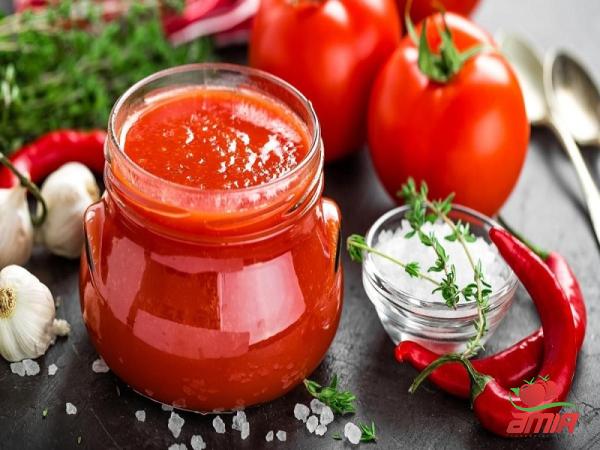 The increasing consumer awareness of the importance of organic and sustainable food choices has been a significant catalyst for the growth of the organic tomato paste in glass jars market. With a focus on health and wellness, consumers are actively seeking out products that are free from harmful additives and chemicals. The demand for organic tomato paste in glass jars is driven by this desire for clean and natural ingredients. II. The Role of Sustainability in Packaging The choice of glass jars as the preferred packaging for organic tomato paste aligns with the sustainability movement. Glass is a recyclable and eco-friendly material, offering a more sustainable alternative to traditional plastic containers. Packaging in glass jars not only appeals to environmentally conscious consumers but also communicates the commitment of brands to reducing their carbon footprint. III. The Importance of Certification and Trust Organic certification plays a vital role in establishing trust with consumers. Brands that invest in organic certification provide transparency and assurance that their tomato paste meets rigorous industry standards. This certification instills confidence in consumers, making them more likely to choose organic tomato paste in glass jars over conventional alternatives. IV. Premium Quality Ingredients & Flavors Organic tomato paste in glass jars is made from high-quality organic tomatoes, which are grown in nutrient-rich soil without the use of synthetic chemicals. This focus on quality ingredients translates into superior flavors and enhances the overall taste experience. Consumers are willing to pay a premium for the distinct and authentic flavors that organic tomato paste provides. V. Health-Conscious Consumer Profiles Organic tomato paste in glass jars appeals to a wide range of health-conscious consumers, including those with dietary restrictions and specialized diets such as vegan, vegetarian, and gluten-free. The clean and natural profile of organic tomato paste makes it a versatile ingredient that can be incorporated into a variety of diets and lifestyles. VI. Online Retail and Convenience The rise of e-commerce has opened up new avenues of distribution for organic tomato paste in glass jars. Online marketplaces and direct-to-consumer websites have made it easier for consumers to access niche and specialty organic products. The convenience of online shopping, coupled with the availability of unique organic tomato paste brands, has contributed to the growth of this market segment. VII. Marketing Strategies and Brand Differentiation In a competitive market, brands are investing in unique marketing strategies to stand out and differentiate themselves. Storytelling that highlights the farm-to-jar journey, partnerships with sustainable and organic farming organizations, and emphasizing the health benefits of organic tomatoes are some of the approaches used to create a strong brand image. These strategies help build consumer loyalty and attract like-minded consumers. VIII. Collaborations and Partnerships To further drive growth, organic tomato paste brands are forming collaborations and partnerships with other businesses and organizations within the organic and sustainable food industry. These collaborations allow for shared knowledge, resources, and distribution networks. For example, partnering with organic pasta manufacturers or sustainable grocery chains can increase the visibility and accessibility of organic tomato paste in glass jars.
The increasing consumer awareness of the importance of organic and sustainable food choices has been a significant catalyst for the growth of the organic tomato paste in glass jars market. With a focus on health and wellness, consumers are actively seeking out products that are free from harmful additives and chemicals. The demand for organic tomato paste in glass jars is driven by this desire for clean and natural ingredients. II. The Role of Sustainability in Packaging The choice of glass jars as the preferred packaging for organic tomato paste aligns with the sustainability movement. Glass is a recyclable and eco-friendly material, offering a more sustainable alternative to traditional plastic containers. Packaging in glass jars not only appeals to environmentally conscious consumers but also communicates the commitment of brands to reducing their carbon footprint. III. The Importance of Certification and Trust Organic certification plays a vital role in establishing trust with consumers. Brands that invest in organic certification provide transparency and assurance that their tomato paste meets rigorous industry standards. This certification instills confidence in consumers, making them more likely to choose organic tomato paste in glass jars over conventional alternatives. IV. Premium Quality Ingredients & Flavors Organic tomato paste in glass jars is made from high-quality organic tomatoes, which are grown in nutrient-rich soil without the use of synthetic chemicals. This focus on quality ingredients translates into superior flavors and enhances the overall taste experience. Consumers are willing to pay a premium for the distinct and authentic flavors that organic tomato paste provides. V. Health-Conscious Consumer Profiles Organic tomato paste in glass jars appeals to a wide range of health-conscious consumers, including those with dietary restrictions and specialized diets such as vegan, vegetarian, and gluten-free. The clean and natural profile of organic tomato paste makes it a versatile ingredient that can be incorporated into a variety of diets and lifestyles. VI. Online Retail and Convenience The rise of e-commerce has opened up new avenues of distribution for organic tomato paste in glass jars. Online marketplaces and direct-to-consumer websites have made it easier for consumers to access niche and specialty organic products. The convenience of online shopping, coupled with the availability of unique organic tomato paste brands, has contributed to the growth of this market segment. VII. Marketing Strategies and Brand Differentiation In a competitive market, brands are investing in unique marketing strategies to stand out and differentiate themselves. Storytelling that highlights the farm-to-jar journey, partnerships with sustainable and organic farming organizations, and emphasizing the health benefits of organic tomatoes are some of the approaches used to create a strong brand image. These strategies help build consumer loyalty and attract like-minded consumers. VIII. Collaborations and Partnerships To further drive growth, organic tomato paste brands are forming collaborations and partnerships with other businesses and organizations within the organic and sustainable food industry. These collaborations allow for shared knowledge, resources, and distribution networks. For example, partnering with organic pasta manufacturers or sustainable grocery chains can increase the visibility and accessibility of organic tomato paste in glass jars.
buy tomato paste
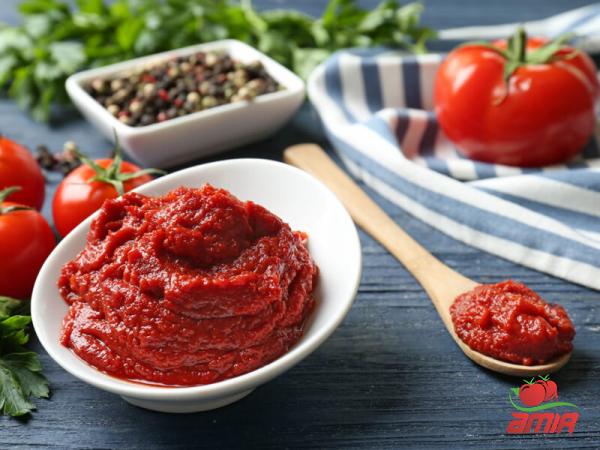 IX. Capitalizing on Foodservice Demand The foodservice industry presents a significant opportunity for organic tomato paste brands. Restaurants, cafes, and other foodservice establishments are increasingly integrating organic and sustainable ingredients into their menus to cater to the demands of health-conscious consumers. Organic tomato paste in glass jars, with its superior quality and flavor, can be a valuable addition to the offerings of these establishments. X. Culinary Education and Recipe Development Culinary education and recipe development play a crucial role in promoting the use of organic tomato paste in glass jars. Brands can collaborate with chefs and cooking influencers to develop and share innovative and flavorful recipes that highlight the versatility of organic tomato paste. This approach not only educates consumers on different ways to use the product but also positions it as a must-have ingredient for creating delicious meals. XI. Expanding Distribution Channels To accommodate the growing demand, organic tomato paste brands are expanding their distribution channels by seeking partnerships with wholesalers, retailers, and specialty food stores. This allows for wider availability of organic tomato paste in glass jars, making it accessible to a broader consumer base. Additionally, creating relationships with international distributors can open up opportunities for exporting this specialty product to global markets. XII. Research and Development for Innovation Research and development efforts within the organic tomato paste industry are focused on innovation and product development. Brands are continuously seeking ways to improve their manufacturing processes, enhance flavors, and extend shelf life without compromising the organic and sustainable attributes of the product. These efforts drive quality improvements and ensure the continued growth and success of the organic tomato paste in glass jars market. Conclusion: The rise of organic tomato paste in glass jars is a testament to the increasing consumer demand for sustainable, healthy, and flavorful food choices. This industry’s growth is driven by various factors, including consumer awareness, sustainable packaging preferences, and a focus on high-quality ingredients. As consumers continue to prioritize their health, environmental impact, and culinary experiences, the popularity and availability of organic tomato paste in glass jars will likely continue to expand. With innovation, strategic partnerships, and a commitment to meeting consumer demands, organic tomato paste brands are well-positioned to thrive in today’s health-conscious and sustainability-driven marketplace.
IX. Capitalizing on Foodservice Demand The foodservice industry presents a significant opportunity for organic tomato paste brands. Restaurants, cafes, and other foodservice establishments are increasingly integrating organic and sustainable ingredients into their menus to cater to the demands of health-conscious consumers. Organic tomato paste in glass jars, with its superior quality and flavor, can be a valuable addition to the offerings of these establishments. X. Culinary Education and Recipe Development Culinary education and recipe development play a crucial role in promoting the use of organic tomato paste in glass jars. Brands can collaborate with chefs and cooking influencers to develop and share innovative and flavorful recipes that highlight the versatility of organic tomato paste. This approach not only educates consumers on different ways to use the product but also positions it as a must-have ingredient for creating delicious meals. XI. Expanding Distribution Channels To accommodate the growing demand, organic tomato paste brands are expanding their distribution channels by seeking partnerships with wholesalers, retailers, and specialty food stores. This allows for wider availability of organic tomato paste in glass jars, making it accessible to a broader consumer base. Additionally, creating relationships with international distributors can open up opportunities for exporting this specialty product to global markets. XII. Research and Development for Innovation Research and development efforts within the organic tomato paste industry are focused on innovation and product development. Brands are continuously seeking ways to improve their manufacturing processes, enhance flavors, and extend shelf life without compromising the organic and sustainable attributes of the product. These efforts drive quality improvements and ensure the continued growth and success of the organic tomato paste in glass jars market. Conclusion: The rise of organic tomato paste in glass jars is a testament to the increasing consumer demand for sustainable, healthy, and flavorful food choices. This industry’s growth is driven by various factors, including consumer awareness, sustainable packaging preferences, and a focus on high-quality ingredients. As consumers continue to prioritize their health, environmental impact, and culinary experiences, the popularity and availability of organic tomato paste in glass jars will likely continue to expand. With innovation, strategic partnerships, and a commitment to meeting consumer demands, organic tomato paste brands are well-positioned to thrive in today’s health-conscious and sustainability-driven marketplace.
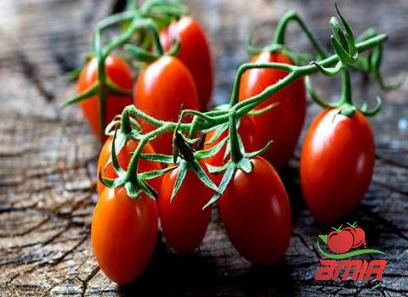
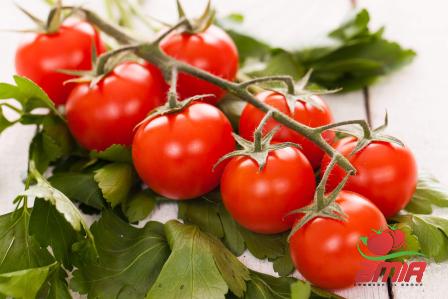

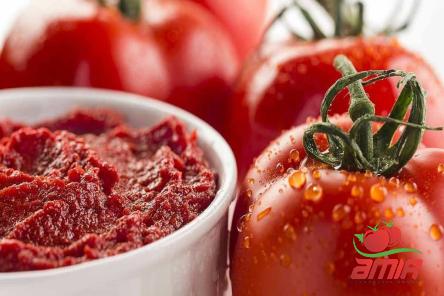


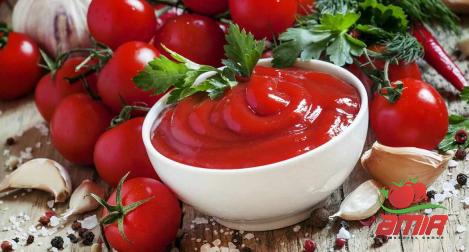



Your comment submitted.